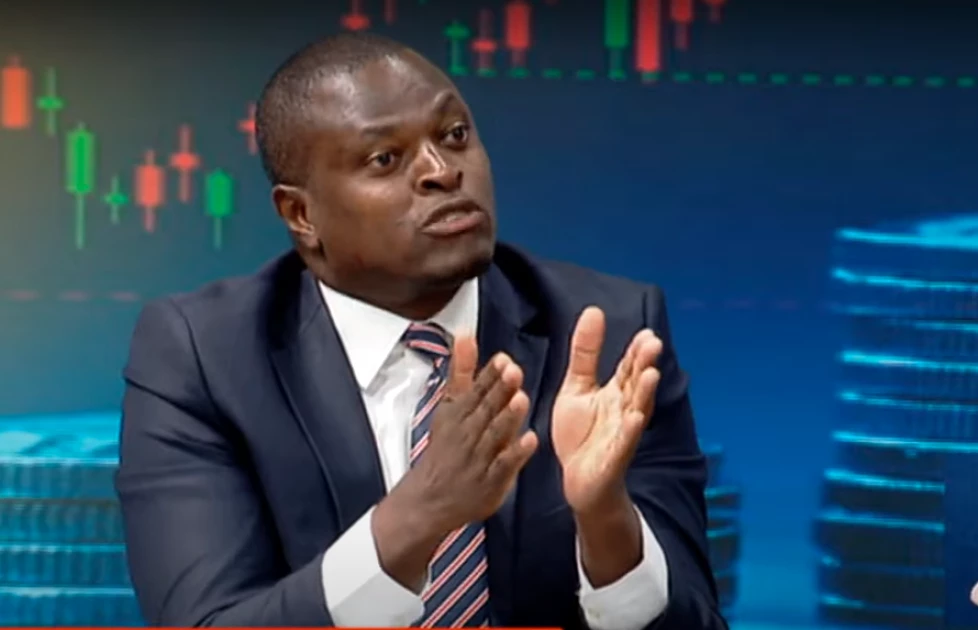When Harrison Mwaura scored a staggering Sh 224,000 from a single bet, he believed he had truly struck it rich. Yet, by the break of dawn, every shilling had vanished. All that remained were feelings of regret, bewilderment, and a chicken he had bought for Sh 1,000.
Today, Harrison works as an addiction counselor and shared his compelling experience on Spice FM on Wednesday morning, May 14.
Before turning his life around, he fell from being a respected banker to nearly homeless, drowning in gambling debts and facing possible jail time.
“I began with a Sh 500 wager on 14 matches and walked away with Sh 21,000. That initial win changed my life. It felt like magic. I upgraded from a single room to a one-bedroom apartment. My wife believed I’d found a new source of income,” he recalled.
However, what followed was years of financial collapse and emotional turmoil, all sparked by that seemingly harmless win. His story serves as a warning about how gambling addiction quietly tightens its grip.
“I kept placing bets and winning. My mind only held onto the victories—the Sh 200,000 here, the Sh 20,000 there—and forgot the losses. Eventually, I won Sh 224,000. The only thing I bought with it was a chicken. I gambled the rest away. By morning, I was left with nothing,” he said.
Harrison explains that the true addiction isn’t about the money itself, but the intense dopamine rush—the exhilarating high—that keeps gamblers hooked.
“It’s not merely the act of betting; it’s the excitement—the near wins, the chase for the jackpot. Even when you lose, your brain convinces you it was almost a win. That’s why people keep going, hoping the next big win will fix everything.”
He described the addiction’s progression in four harsh stages: winning, losing, depression, and despair.
“Some people even think about suicide if they don’t get help,” he added.
When gambling turns into a disease
As a banker, Harrison managed large sums of money. But addiction clouded his judgment.
“I would have tabs open on my computer—one for customer transactions, another for betting odds. I even took my phone into the bathroom to place bets, sometimes spending over 30 minutes there,” he revealed.
In time, his gambling caught up with him. He lost his job after racking up Sh 1.2 million in debt, narrowly avoided jail, and was deserted by his family.
“I sold my executive barbershop and my cereal business. I ended up homeless, sleeping on pool tables. Gambling cost me everything.”
Kenya’s ongoing battle with betting
In Kenya, gambling has been a controversial issue for years. When Fred Matiang’i was Interior Cabinet Secretary, the government took a hard stance—banning platforms like SportPesa and Betin, and destroying betting machines.
Just last month, concerns over gambling addiction intensified. In response, President William Ruto instructed mobile money providers to block paybills for more than 30 betting companies.
Currently, betting advertisements have disappeared from radio and TV, while the Betting Control and Licensing Board now vets all gambling adverts before broadcast.
Yet, as Harrison points out, regulations alone won’t solve the problem.
“Some lawmakers making these rules are also benefiting from gambling revenues. It’s like putting a fox in charge of the henhouse,” he said.
Why gamblers don’t cash out
Why do gamblers rarely withdraw their winnings?
“Addiction rewires your brain. When I won that Sh 224,000, it didn’t feel like real money. It felt like chips to keep the game going. Many clients tell me the same thing. One put in Sh 4,000 and saw the balance rise to Sh 1.1 million—yet never withdrew. The brain doesn’t recognize it as real; it’s just fuel for the next bet,” Harrison explained.
He warns that betting isn’t a way to earn or invest.
“It’s an emotional disorder with financial fallout,” he stressed.
A message of hope and warning
Despite all the destruction, Harrison’s journey didn’t end in despair. He sought help, got sober, and now supports others battling the same addiction.
“My wife had to decide between me and our child. I lost my family, career, and self-respect. But I had support, and that saved me. Not everyone is as fortunate,” he said.
Now working as an addiction counselor in rehab centers, Harrison offers hope to those caught in the vicious cycle. His message is clear: addiction is an illness, not a choice.
“Society must stop viewing gambling addiction as a moral failing. When someone sells land or gambles rent money, it’s not irresponsibility—it’s sickness. Until we recognize that, nothing will change.”

